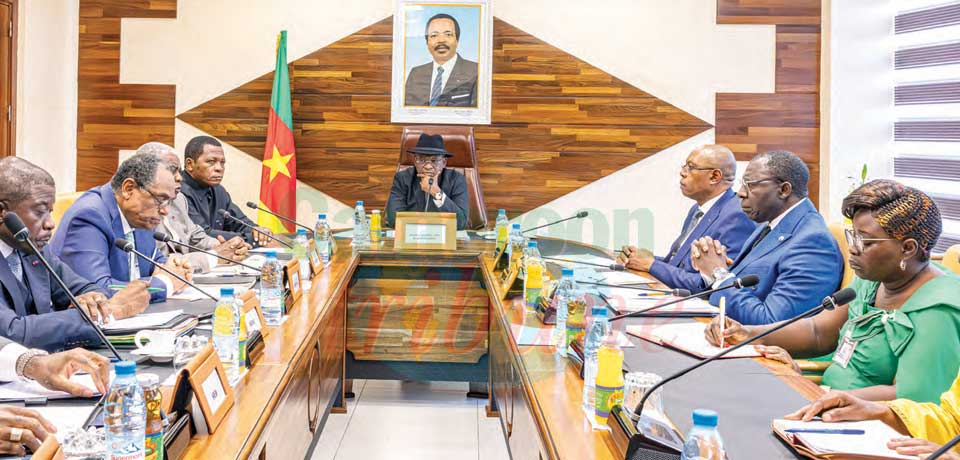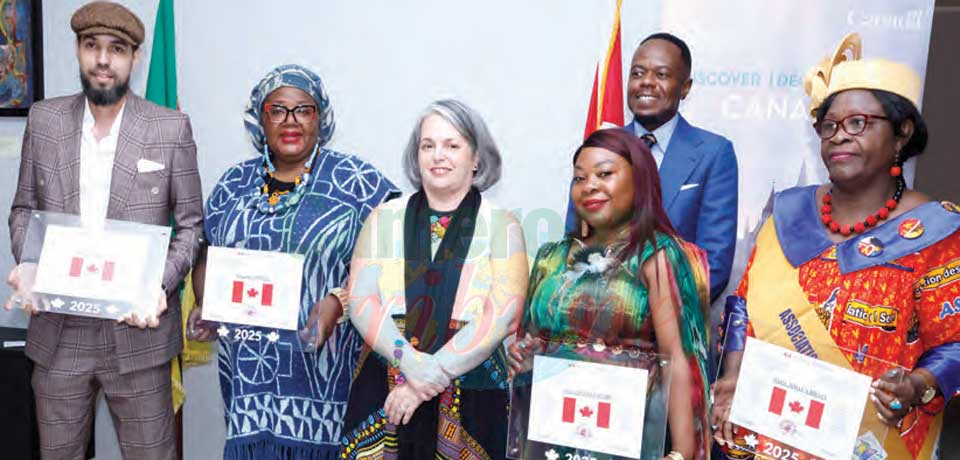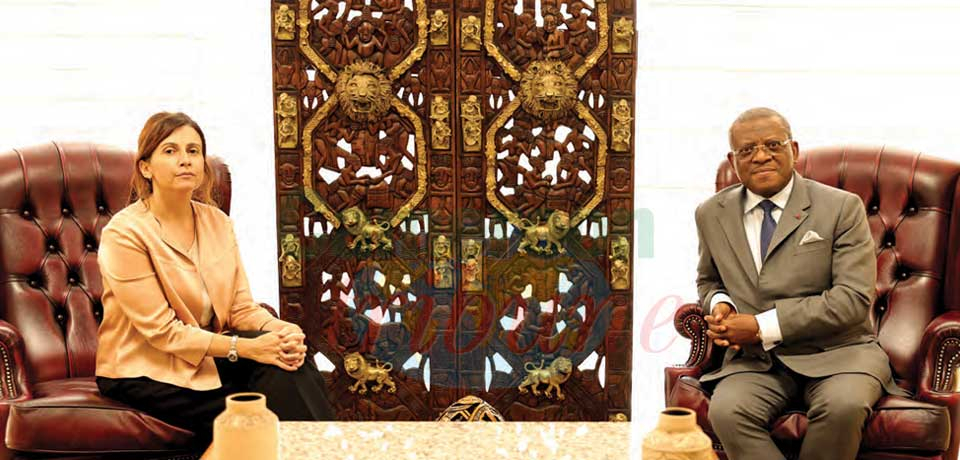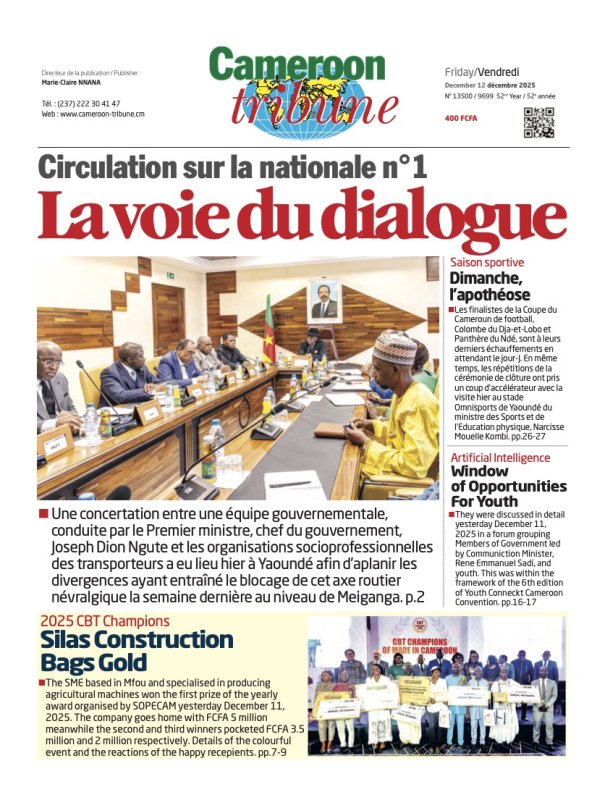The role of the media is once again in the spotlight since the advent of the socio-political crisis in the North West and South West regions. What is its primary assignment? Is it to incite violence or calm the minds of the population? What should we expect from the media in a context of a visible insurrection where voices rise to call for more responsibility? These questions, which have been asked repeatedly, raise concerns and create shadows within the spheres of ethical journalism.
Indisputably, this phenomenon is consubstantial to most crisis situations. Here as elsewhere, it is the subject of intense discussions, whenever a country is confronted with socio-political tensions that are likely to destroy its social fabric. A perfect example is the case of a brotherly African country – Rwanda– in the last quarter of the 20thCentury, which still haunts our collective memory. The waves of the infamous “Radio Mille Collines” are often labelled as the catalyst to the violence in 1994,which led to the genocide. Nearly a million deaths were recorded within four months!
There are countless examples around us, which can illustrate “the dangers of a lawless press”. Is it not said that an ounce of prevention is worth a pound of cure? It is against this backdrop that the Minister of Communication embraced the idea to continuously organise consultations with media practitioners. At each stage, Mr. Issa TCHIROMA BAKARY has ceaselessly highlighted the respect of ethics in the business of journalism. He frequently raised their awareness on pressing issues, especially those related to the sovereignty of our country and the invaluable nature of our unity, beyond the political buccaneering that is characteristic to some clumsy approaches for the conquest of power.
This is evidenced by the somewhat obscure behaviour observed by a certain press in Cameroon and beyond our national borders. The frantic race for a scoop, the permanent quest of adjectives and other most abject determinants to qualify and denigrate government actions– whose holders are moreover subjected to obloquy, and the will to constantly display a sort of censorship on the positions defended by the authorities have guided their course of action. Speaking of an editorial line! Consequently, irreparable damage is registered when social media platforms get involved because for some it constitute the main source of information – where everything circulates feverishly, without filter and overlap.
Nowadays, everybody knows the capacity of the social media to misinform, manipulate and disorientate the masses. Users have chosen the path of sensationalism, one that tends to lose all sense of reason, often to the fallacious pretext of freedom of speech and freedom of information which, unfortunately, places the press in coffins and even on the sidelines of the most basic professional standards.
Indignant and shocked by so many shortcomings, Pope Francis had to get out of his silence, and tackle the issue of “fake news”; these unfounded information that generate and fuel a strong polarisation of opinions. So he announced, by anticipation, on 29September 2017 (instead of January 24; a day dedicated to Saint Francis of Sales – the patron of journalists), the theme of the 2018 World Communication Day: “The truth will set you free (John 8:32). Fake news and journalism of peace”.The approach of the Holy Father is to “promote professional journalism, which always seeks the truth, and thus a peace journalism that promotes a culture of tolerance and understanding among the various groups of the society”, one of the foundations of a responsible press.
The responsible press: that which in times of crisis, is affirmed by a “citizen’s contribution” to resolutely serve an information of faultless quality and free from any partisan suspicion; one that knows how to appreciate and not to devalue, to motivate and not to demoralise, to exalt and not to demonise.
The responsible press : that which knows, in times of crisis, how to avoid those defects that contribute in labelling some as “hate media” for getting away from the ethical and deontological rules which, in Cameroon, the National Communication Council (NCC) remains the fervent guardian, beyond the body of law that governs the practice of the profession. The responsible press: that which knows, in times of peace as in times of crisis, how to remember the first requirement of “information processing” before any publication to facilitate its absorption by readers, listeners, and viewers. A treatment that requires a lot of restraint for any journalist whose duty is to build his society by prohibiting the dissemination of information that could lead to its demolition. Yes, the principle of responsibility is at the heart of freedom of the press and the practice of journalism. It imposes “restraint”; by oneself or by an intermediary.
It also requires that the principle of quality information, as defined in various journalism charters, namely “complete, free, independent and pluralistic information”, do not become the pretext for uncontrolled flaws. In our context, could one for example, understand that newspapers pamper the defence of...
Cet article complet est réservé aux abonnés
Déjà abonné ? Identifiez-vous >
Accédez en illimité à Cameroon Tribune Digital à partir de 26250 FCFA
Je M'abonne1 minute suffit pour vous abonner à Cameroon Tribune Digital !
- Votre numéro spécial cameroon-tribune en version numérique
- Des encarts
- Des appels d'offres exclusives
- D'avant-première (accès 24h avant la publication)
- Des éditions consultables sur tous supports (smartphone, tablettes, PC)














Commentaires